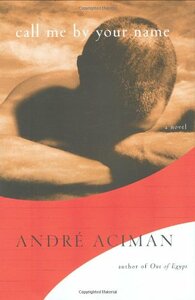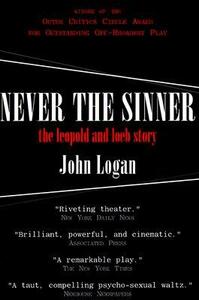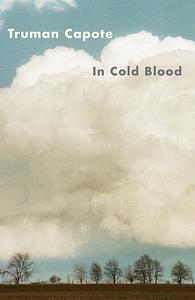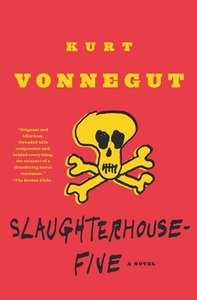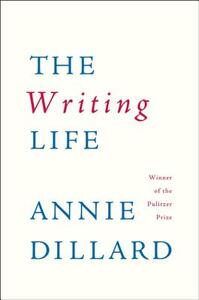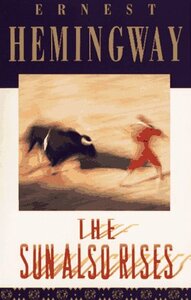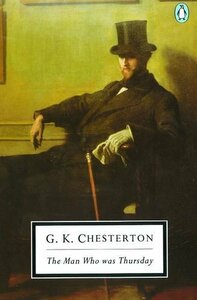Take a photo of a barcode or cover
jonscott9's Reviews (211)
"What I didn’t realize was that wanting to test desire is nothing more than a ruse to get what we want without admitting that we want it."
Testify! So says the wise-beyond-years Elio, an Italian teen who engages in a mental-turned-physical affair with an American grad student, Oliver, summering at his family's seaside home. The book's protagonist, this precious Elio, is sometimes a bit whiny (shades of Amir from Kite Runner here) but provides some stark insights into the mind and emotions of a confused, romantic, ultimately agreeable adolescent. Kudos to author Aciman for how he enters the head of this one.
It's truly something to strike up a book at The Perfect Time in one's life, and that's what happened for me with this novel, which I was initially turned on to by its inclusion on the New York Times' 2007 best-of list. I'd finish it an entire year later, but it was right on time.
The affinity that the two young men in this story have for one another comes across as genuine and respectful and admirable. It's a delicate subject matter to a degree, and Aciman penned this story as though he'd been storing it up inside head and heart for decades. Maybe he had.
Elio's lust at first is replaced by very real care and affection for another, and his coming of age is heartrending and instructional. Recall the first time you fell in love, if indeed you have already, and all the wonderment and pain and joy and squalor that brought to your life. Your psyche. Your viscera. Your very body. It's violent to love someone.
Sometimes there was just a gorgeous stand-alone sentence, as with "Find Cupid everywhere in Rome because we’d clipped one of his wings and he was forced to fly in circles."
Elio's benchmark conversation with his sage father, couched in closing pages here, is probably the best father-son talk I've been witness to, in literature or in life. It's healing, touching. Truly a moving story on the whole, intense and sad and silly and serious, as with most affairs of the heart.
"I look back on those days and regret none of it, not the risks, not the shame, not the total lack of foresight. ... I knew that our minutes were numbered, but I didn’t dare count them, just as I knew where all this was headed, but didn’t care to read the mileposts. This was a time when I intentionally failed to drop bread crumbs for my return journey; instead, I ate them. He could turn out to be a total creep; he could change me or ruin me forever, while time and gossip might ultimately disembowel everything we shared and trim the whole thing down till nothing but fish bones remained. I might miss this day, or I might do far better, but I’d always know that on those afternoons in my bedroom I had held my moment."
Testify! So says the wise-beyond-years Elio, an Italian teen who engages in a mental-turned-physical affair with an American grad student, Oliver, summering at his family's seaside home. The book's protagonist, this precious Elio, is sometimes a bit whiny (shades of Amir from Kite Runner here) but provides some stark insights into the mind and emotions of a confused, romantic, ultimately agreeable adolescent. Kudos to author Aciman for how he enters the head of this one.
It's truly something to strike up a book at The Perfect Time in one's life, and that's what happened for me with this novel, which I was initially turned on to by its inclusion on the New York Times' 2007 best-of list. I'd finish it an entire year later, but it was right on time.
The affinity that the two young men in this story have for one another comes across as genuine and respectful and admirable. It's a delicate subject matter to a degree, and Aciman penned this story as though he'd been storing it up inside head and heart for decades. Maybe he had.
Elio's lust at first is replaced by very real care and affection for another, and his coming of age is heartrending and instructional. Recall the first time you fell in love, if indeed you have already, and all the wonderment and pain and joy and squalor that brought to your life. Your psyche. Your viscera. Your very body. It's violent to love someone.
Sometimes there was just a gorgeous stand-alone sentence, as with "Find Cupid everywhere in Rome because we’d clipped one of his wings and he was forced to fly in circles."
Elio's benchmark conversation with his sage father, couched in closing pages here, is probably the best father-son talk I've been witness to, in literature or in life. It's healing, touching. Truly a moving story on the whole, intense and sad and silly and serious, as with most affairs of the heart.
"I look back on those days and regret none of it, not the risks, not the shame, not the total lack of foresight. ... I knew that our minutes were numbered, but I didn’t dare count them, just as I knew where all this was headed, but didn’t care to read the mileposts. This was a time when I intentionally failed to drop bread crumbs for my return journey; instead, I ate them. He could turn out to be a total creep; he could change me or ruin me forever, while time and gossip might ultimately disembowel everything we shared and trim the whole thing down till nothing but fish bones remained. I might miss this day, or I might do far better, but I’d always know that on those afternoons in my bedroom I had held my moment."
"I could look at them like you do, Bob. I could damn these boys for what they did. For the madness, for the brutality ... I can see the sin in all the world. And I may well hate that sin, but never the sinner."
So go the words of defense attorney Clarence Darrow, to state attorney Crowe. The scene is jazz-era Chicago, 1924, and two 19-year-olds, Nathan Leopold and Richard Loeb, are on trial for the heinous, seemingly unrepentant murder of an acquaintance, a 14-year-old boy.
It's a true story. Leopold and Loeb harbored intellectual prowess for their years, as well as massive hubris, both, that blinded them to the fact that they were actually not Nietzsche's "ubermensch" as they fancied. Turns out they weren't so above the law, weren't perfect.
That alone is obvious by the fact that they were caught. They did not intend to be but were, and stood trial for the killing. The playbook by John Logan does well to not announce the verdict in some melodramatic courtroom scene within his pages.
Exchanges both in and outside the court between Darrow and Crowe are the benchmark addresses or monologues in this play. They get a bit talky, even for a play that at times seems to feign serving as a discourse on capital punishment, but that grandstanding is just what lawyers do, and in Chicago, and in the '20s (see: the musical Chicago, et al). The dialogue here is crisp, staccaco, but for Leopold's strangely loping opening monologue. In the hands of a top-notch director and the throats of polished performers, this show could be brought to life in a riveting way. A local production to be staged soon will do just that, with hope.
Leopold and Loeb fascinate even as they repulse. The attractive, charming Loeb seems soulless but then is let down when his mother won't have anything to do with him as Chicagoans call for his hanging; she seems to be the one person on the earth who he doesn't want to disappoint. Leopold's mother died when he was younger, and he's painted as a ruthlessly academic, learned young man with a fierce romantic bent to boot.
That the two had a sexual pact on the side of their criminal co-conspiring is intriguing, and of course given prominence. Sensational headlines delivered by adult-Newsies-styled reporters canvassing the court and interviewing the players involved tout the affair behind the crime. This was the '20s, after all, and, anyway, sex has always ruled the media.
"This is a love story," say the notes appearing ahead of the two acts. That may be, but if so, it's a rather painfully one-sided one. One of these two seems incapable of ever loving another more than himself. The murder aside, that itself is a real tragedy.
So go the words of defense attorney Clarence Darrow, to state attorney Crowe. The scene is jazz-era Chicago, 1924, and two 19-year-olds, Nathan Leopold and Richard Loeb, are on trial for the heinous, seemingly unrepentant murder of an acquaintance, a 14-year-old boy.
It's a true story. Leopold and Loeb harbored intellectual prowess for their years, as well as massive hubris, both, that blinded them to the fact that they were actually not Nietzsche's "ubermensch" as they fancied. Turns out they weren't so above the law, weren't perfect.
That alone is obvious by the fact that they were caught. They did not intend to be but were, and stood trial for the killing. The playbook by John Logan does well to not announce the verdict in some melodramatic courtroom scene within his pages.
Exchanges both in and outside the court between Darrow and Crowe are the benchmark addresses or monologues in this play. They get a bit talky, even for a play that at times seems to feign serving as a discourse on capital punishment, but that grandstanding is just what lawyers do, and in Chicago, and in the '20s (see: the musical Chicago, et al). The dialogue here is crisp, staccaco, but for Leopold's strangely loping opening monologue. In the hands of a top-notch director and the throats of polished performers, this show could be brought to life in a riveting way. A local production to be staged soon will do just that, with hope.
Leopold and Loeb fascinate even as they repulse. The attractive, charming Loeb seems soulless but then is let down when his mother won't have anything to do with him as Chicagoans call for his hanging; she seems to be the one person on the earth who he doesn't want to disappoint. Leopold's mother died when he was younger, and he's painted as a ruthlessly academic, learned young man with a fierce romantic bent to boot.
That the two had a sexual pact on the side of their criminal co-conspiring is intriguing, and of course given prominence. Sensational headlines delivered by adult-Newsies-styled reporters canvassing the court and interviewing the players involved tout the affair behind the crime. This was the '20s, after all, and, anyway, sex has always ruled the media.
"This is a love story," say the notes appearing ahead of the two acts. That may be, but if so, it's a rather painfully one-sided one. One of these two seems incapable of ever loving another more than himself. The murder aside, that itself is a real tragedy.
"May He support us all the day long, till the shades lengthen, and the evening comes, and the busy world is hushed, and the fever of life is over, and our work is done."
-John Henry Newman
Here's a dear little play that subtly packs a wallop. Six scenes, 55 pages, 3 characters. Questions arise of God and life and love and why, and few concrete answers are given (how postmodern, right?) while the characters yet wrestle and cope to the end.
They each have their reasons to do just that. Hannah is a middle-aged widow and woman of the cloth, mother to Thomas, and apartment dweller on NYC's 122nd Street. Her home features a brimming library, and Brandt is the young writer who signs on to help her write a book about a gnostic gospel that may reveal truths about the life and words of Jesus.
Hannah has her reasons for taking on Brandt, in particular - her lone offspring Thomas has a nomadic heart and keeps disappearing and returning, ever the prodigal. In a way she brings in Brandt as an anchor for her son, and the two do begin a relationship. Brandt has his own reasons for working on Hannah's book, as he deals with the most normal and basic and wrenching thing all humans encounter: loss.
Sound engrossing? It is. I'll say no more about the plot. The dialogue is crisp and smart, incredibly well-said. Sometimes hilariously witty, sometimes heartrending.
The relationship between Brandt and Thomas felt a bit forced, but, then again, it is just that. Hannah is not above a little deus ex machina action in her son's life. Oh, these three are all too human. They are all good people also, whether or not each is is inclined to snatch that goodness for themselves.
Some things in life you just cannot brace for. Each of these characters encounters that and responds in ways revealing true (vibrant) colors.
(Need another reason to read Bunin? His play 10 Million Miles has music and lyrics by one Patty Griffin.)
-John Henry Newman
Here's a dear little play that subtly packs a wallop. Six scenes, 55 pages, 3 characters. Questions arise of God and life and love and why, and few concrete answers are given (how postmodern, right?) while the characters yet wrestle and cope to the end.
They each have their reasons to do just that. Hannah is a middle-aged widow and woman of the cloth, mother to Thomas, and apartment dweller on NYC's 122nd Street. Her home features a brimming library, and Brandt is the young writer who signs on to help her write a book about a gnostic gospel that may reveal truths about the life and words of Jesus.
Hannah has her reasons for taking on Brandt, in particular - her lone offspring Thomas has a nomadic heart and keeps disappearing and returning, ever the prodigal. In a way she brings in Brandt as an anchor for her son, and the two do begin a relationship. Brandt has his own reasons for working on Hannah's book, as he deals with the most normal and basic and wrenching thing all humans encounter: loss.
Sound engrossing? It is. I'll say no more about the plot. The dialogue is crisp and smart, incredibly well-said. Sometimes hilariously witty, sometimes heartrending.
The relationship between Brandt and Thomas felt a bit forced, but, then again, it is just that. Hannah is not above a little deus ex machina action in her son's life. Oh, these three are all too human. They are all good people also, whether or not each is is inclined to snatch that goodness for themselves.
Some things in life you just cannot brace for. Each of these characters encounters that and responds in ways revealing true (vibrant) colors.
(Need another reason to read Bunin? His play 10 Million Miles has music and lyrics by one Patty Griffin.)
Capote's insatiable attachment to the case of a quadruple murder on a family farm in Kansas is wild. The details of his reporting and writing are painstaking, and we want them all. Some elements are factually suspect for the sake of story maybe, but it's thrilling stuff from this father of modern literary journalism.
This short novel is based loosely on Shakespeare's "The Temptest." (Buechner is a big fan of Bill.) Here he tells a great little story of loss and redemption. Buechner's books always have autobiographical morsels in them, and this one's no different. Two wonderful passages stand out in my mind. A great summer read at about 175 pages.
Sometimes this book made me want to laugh and cry (or vice versa), and in the same paragraph. The depictions of the Dresden bombings and its survivors at the tail end of World War II are compelling, and due to Vonnegut's own experience in the holding camp. This is the quirkiest war book you'll ever read.
A few laugh-out-loud moments of hilarious despair are sprinkled in. Vonnegut was a master at blurring the lines between fantasy and history and giving us, ultimately, reality, or a realism that helps us cope somewhat.
I'll never forget Billy Pilgrim or the planet known as Tramalfadore.
A few laugh-out-loud moments of hilarious despair are sprinkled in. Vonnegut was a master at blurring the lines between fantasy and history and giving us, ultimately, reality, or a realism that helps us cope somewhat.
I'll never forget Billy Pilgrim or the planet known as Tramalfadore.
I thought this slim book took a whole lot of patience. Not much of it's to do with writing really, but I'm sure that was by design. I much prefer Anne Lamott's Bird by Bird or Stephen King's On Writing to this read. Not recommended for a first-time reader of Dillard. She's an acquired taste, but oh, once you have tasted and seen that the Dillard is good, you won't regret it (see: Holy the Firm).
At times this book is beautiful, and at other times, honestly, it made me want to shake somebody. As literature, it's not as good as I expected. As Christian allegory, it succeeds. The allegory's slim, though. Just about everything is straightforward in this book. What you see is pretty much what you get.
Hurnard is good at describing things of natural beauty. Her protagonist Much-Afraid just sometimes annoyed me with her seeming hyper-emotional responses to, well, everything. Maybe I'm being overly critical or ridiculous, I'm not sure. Suffice it to say that I don't regret reading it.
Hurnard is good at describing things of natural beauty. Her protagonist Much-Afraid just sometimes annoyed me with her seeming hyper-emotional responses to, well, everything. Maybe I'm being overly critical or ridiculous, I'm not sure. Suffice it to say that I don't regret reading it.
If you take The Great Gatsby and set it in Pamplona, Spain, at the time of the classic bull fights, you get The Sun Also Rises. Fitzgerald and Hemingway were contemporaries no less, and the stately, energetic, fun prose is similar. There's a lot of life in this book.
Nothing much exactly happens in the story really, or to the characters. It's like "Seinfeld" in that respect perhaps. Very existential. Hemingway's writing is strong and compact. The dialogue is top-notch. Depending on who it is, you will love or hate each of these characters, and you will be glad you read their little tale.
Nothing much exactly happens in the story really, or to the characters. It's like "Seinfeld" in that respect perhaps. Very existential. Hemingway's writing is strong and compact. The dialogue is top-notch. Depending on who it is, you will love or hate each of these characters, and you will be glad you read their little tale.
This is a classic adventure story, and brainy and British no less. Fast-paced action and lively dialogue permeate these 180 pages. Chesterton indicts anarchy in the midst of all the good fun.
"Being surrounded with every conceivable kind of revolt from infancy, Gabriel had to revolt into something, so he revolted into the only thing left--sanity." Gabriel Syme is a British policeman who goes undercover to foil an anarchist council's assassination plot and gets caught up in the group's doings in the process.
The ending's a bit predictable, but the story does not disappoint. Makes one want to race around London in a day's time just to hit all the haunts serving as backdrops to this meaty detective story.
"Being surrounded with every conceivable kind of revolt from infancy, Gabriel had to revolt into something, so he revolted into the only thing left--sanity." Gabriel Syme is a British policeman who goes undercover to foil an anarchist council's assassination plot and gets caught up in the group's doings in the process.
The ending's a bit predictable, but the story does not disappoint. Makes one want to race around London in a day's time just to hit all the haunts serving as backdrops to this meaty detective story.
